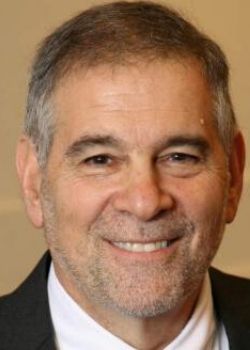Purim is a joyous holiday. Children get dressed up in costumes, they get to jeer the name of Haman and make noise on their noisemakers. Adults get to eat and drink, religious restrictions are few, the preparations are minimal.
What is there not to enjoy?
The world is divided: good guys, Mordecai and Esther; villains, Haman, his ten sons, even his wife Zeresh. The King is fickle: King Ahasuerus, the ruler of an empire of 127 nations, kills his first wife in a fit of anger, authorizes the murder of the Jews to pacify his Prime Minister in return for a handsome bribe and then ever so fortunately changes his mind because he is smitten by his beautiful Queen.
And yet, as in the costumes that people wear, everything is not as it appears to be.
The name of God remains unmentioned in the Biblical Scroll of Esther. Is God absent? Or is God behind the scenes? The Rabbis debated it, since in most Megilot Esther each column save two begins with the word Hamelech [the King], the Rabbis apologetically interpreted this as an allusion of God.
Mordecai refuses to bow down to Haman. Not the first obstinate Jew, not the only contrarian, he will not be intimidated by Haman’s power and prominence. His discordant behavior annoys Haman and mocks his sense of self-importance. Plotting revenge, Haman takes out his annoyance not only on the lone dissenter but on the entire Jewish people. He is not the first of our enemies to confuse “a Jew” with “the Jews.”
As the beauty contestant crowned Queen, Esther’s true identity is hidden. Even very beautiful Jewish women don’t win beauty contests without hiding their identity – at least not until Bess Meyerson was crowned Miss America in 1945. Esther is bidden not to reveal her real identity, not even her true name to anyone. She is a most reluctant heroine, wrestling whether to risk her life to save her people or remain in hiding. Mordecai confronts her, “who knows, perhaps it is for this moment that you became Queen. And if not you, then we will have to go to someone else to come to the rescue. This is your chance to make a difference, to enter history." (How else would we have remembered her so many centuries later? There were probably many unremembered, unidentified Jewish Queens.)
Esther rises to the occasion. Even then the tension builds as she does not confront the King at the first dinner but invites him and Haman for another night, another round of drinks.
Her initial request is timid: I wouldn’t bother His Majesty if my people were to be merely degraded or enslaved but only because they would be killed.
And then fortunes are reversed, Haman is hanged on the gallows he prepared for Mordecai – it can’t get much better than that -- yet the decree of murder cannot be cancelled and the Jews are forced to do something rare in Jewish history, to unite and fight for their lives. Unexpectedly, so very unusual in Jewish history, they succeed, only then do they celebrate. And bequeath to us the celebration to tell the story, to eat and drink and to send food to one another and charity to the poor so the joy can be shared,
Coming but one month before Passover, Purim represents the antithesis of Passover.
In Passover, especially in the story as retold in the traditional Haggadah, God is the actor and Israel is protected. Our enemies are hit with plagues, ten of them. When will they ever learn? Miracle after miracle smooths their path out of slavery, through the Sea, and their sojourn in the desert to the edge of the Promised Land. In the story we retell around our seder table, Moses is not mentioned as stunned by defeat -- the destruction of the Temple and the exile after the failed Bar Kokhba rebellion -- the authors of the Haggadah were frightened of human political leadership and willing to put the redemption of the Jewish people in Divine initiative.
Purim is the opposite. The fate of the Jews is dependent on human initiative and action. Esther risks her life to plead with the powerful King to confront his Prime Minister and overturn the evil decree. Even then, the Jews cannot depend upon the King and the powers that be to protect them. Jewish history is in Jewish hands, Jews must defend themselves against their enemies by physical force if they are to survive.
Behold the Jews of Shushan and of Empire are successful. Perhaps that is the ultimate miracle, the hidden sense of the Divine Presence, that we can take Jewish history into our hands, confront our enemies, survive and thrive. It is then – perhaps only then – that we can rejoice.


 Download PDF
Download PDF